War with Isis: The struggle to rebuild life in Kobani as fighting continues in the surrounding villages
Fréderike Geerdink visits the shattered Syrian border town which was taken from the militants last week
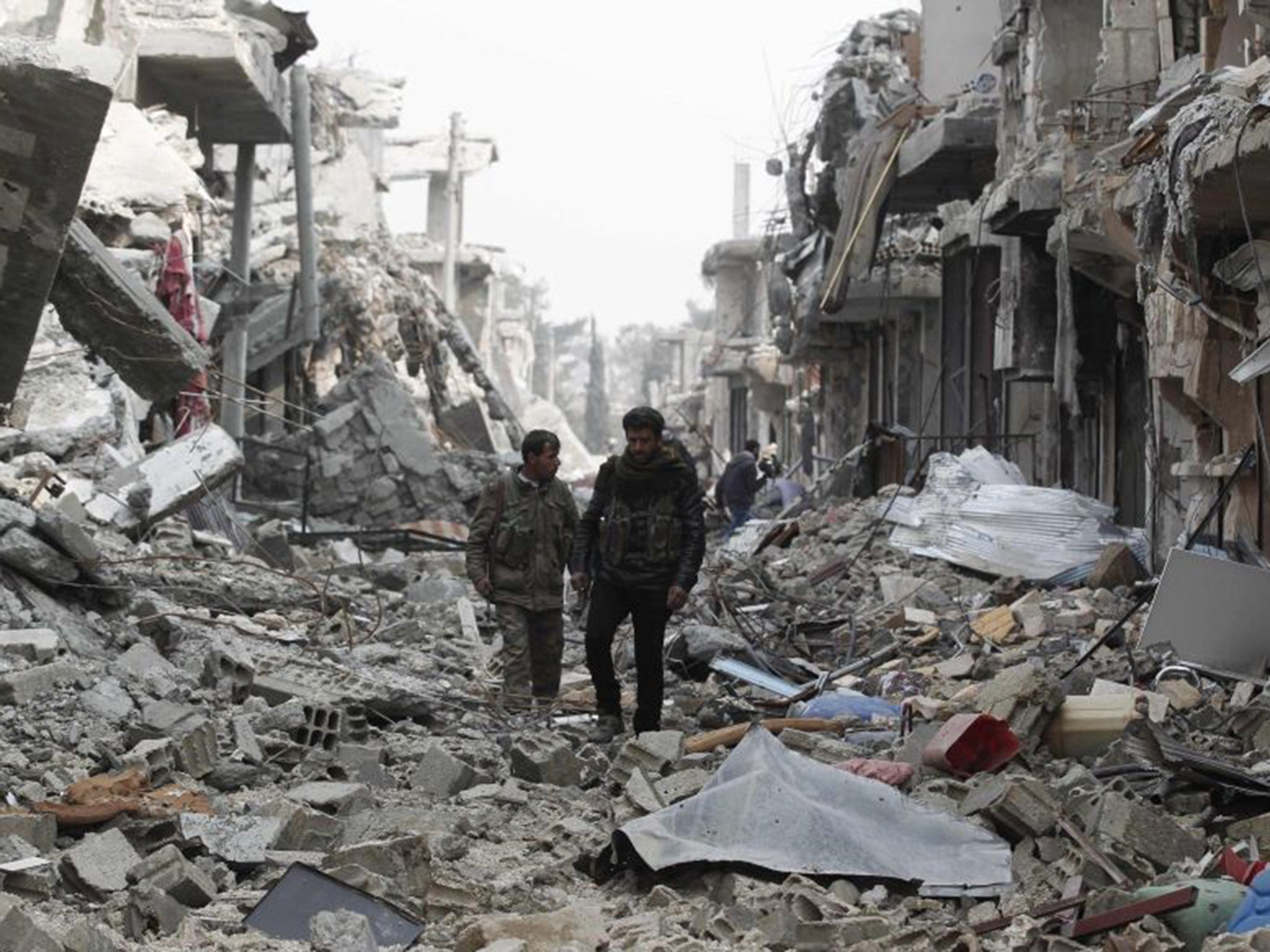
Your support helps us to tell the story
From reproductive rights to climate change to Big Tech, The Independent is on the ground when the story is developing. Whether it's investigating the financials of Elon Musk's pro-Trump PAC or producing our latest documentary, 'The A Word', which shines a light on the American women fighting for reproductive rights, we know how important it is to parse out the facts from the messaging.
At such a critical moment in US history, we need reporters on the ground. Your donation allows us to keep sending journalists to speak to both sides of the story.
The Independent is trusted by Americans across the entire political spectrum. And unlike many other quality news outlets, we choose not to lock Americans out of our reporting and analysis with paywalls. We believe quality journalism should be available to everyone, paid for by those who can afford it.
Your support makes all the difference.Mysteriously, the eagle statue in Kobani’s central Freedom Square was still on its feet, just like the tall, slender minaret of a mosque not too far from the square. Around it, the destruction of the city seemed complete. Ismet Sheikh Hasan, defence minister of Kobani’s Kurdish regional administration stood among the rubble and said: “We call on the youth from Kobani who found refuge in Turkey to return home. We need to clean the streets”.
It was last Monday that Kurdish forces declared that the town was free of Islamic State (Isis) fighters. Walking around Kobani on a drowzy afternoon a few days later, you could only think of the tens of thousands of refugees who crossed the border into Turkey around four months ago, when Isis intensified its siege on the city using heavy arms taken from the Iraqi army. Many of the displaced wanted to go home, probably unable to imagine the destruction that would greet them.
“We could live in a tent”, Mustafa Derwish, a refugee in the Turkish border town of Suruc, told The Independent on Sunday, imagining his return.
But there were no places to set up a tent. Every single street, and every single square, are littered with the concrete remains of walls and roofs, Metal from shop frontages and burnt-out cars are also piled up. And if not, the streets were simply transformed into enormous craters - the marks left by bomb strikes. On one of the corners of Freedom Square the body of a dead Isis-fighter lies rotting. “Go into that street”, a French colleague says. “Follow your nose and you’ll easily find more dissolving bodies”.
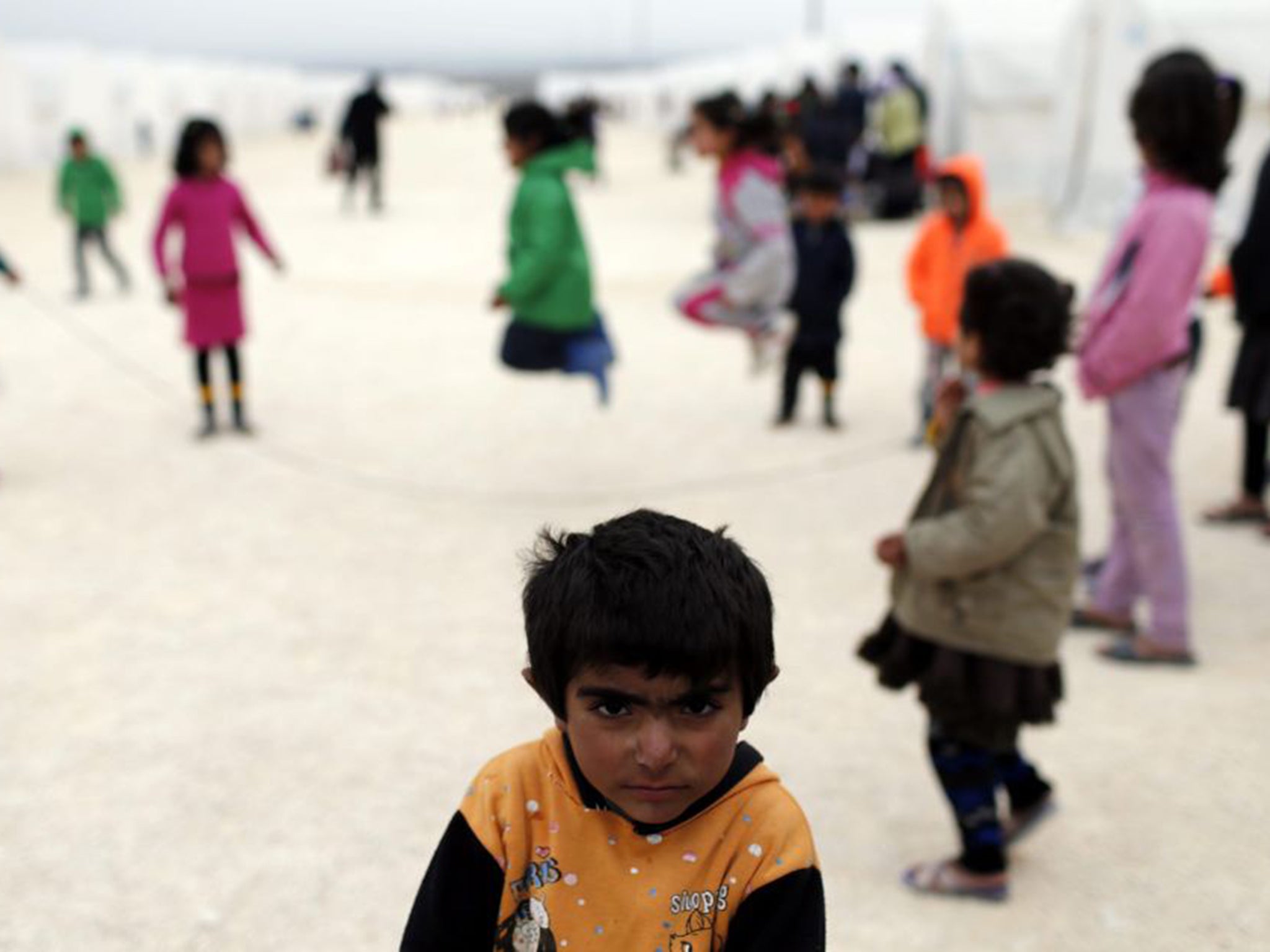
As part of the agreement with the governor of Suruc which allowed the four-hour trip across the border into Kobani, there was a tour of a brand new refugee camp, which the Turkish state had opened in Suruc as the Kurdish forces announced the liberation of Kobani. The fact that events had ensured that not much interest had been shown in the camp was not lost on officials, with the border crossing only coming after a tour of the facility. The camp has a capacity of up to 40,000 people, providing air-conditioning, refrigerators, beds, blankets and a market. The tents in the camp looked neat. But Mr Derwish, with his toddler daughter on his arm, said: “I don’t want a Turkish tent. I want Turkey to open the border to Kobani.”
Once in Kobani, Kurdish fighters from the People’s Defence Units (YPG) traversed the city in damaged cars and pick-up trucks, on motor cycles and on foot, and they stood on strategic corners keeping themselves warm around fires. They guarded the fort. They celebrated their victory with fluttering flags on their vehicles and with V-signs in the air, but didn’t brag about it.
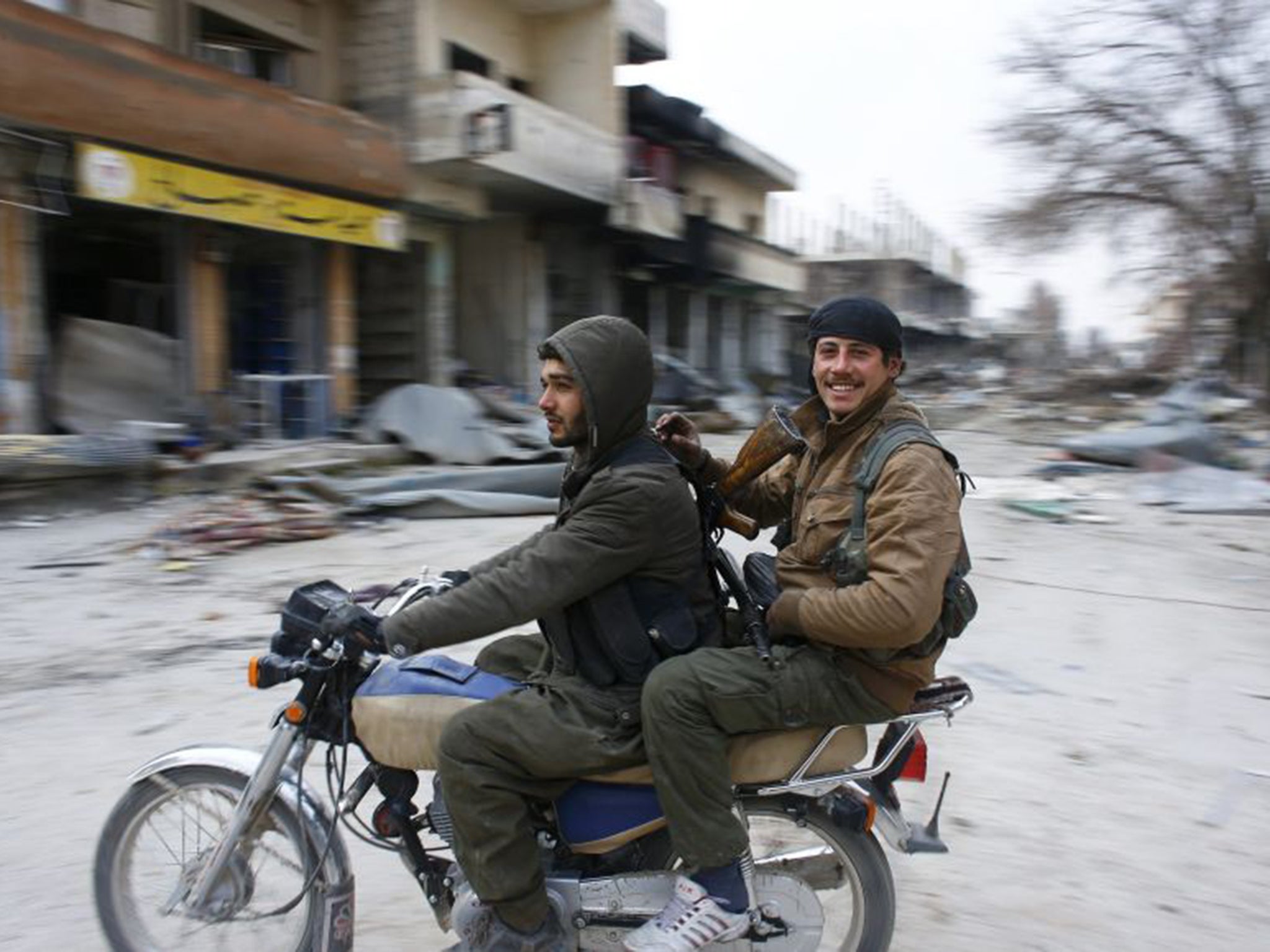
One of the fighters, Nihat, 36, said there was work still to be done. “As long as the villages around Kobani aren’t liberated, as long as the whole of Syria isn’t liberated and Isis fully defeated, I can’t be really happy,” he said
The majority of the more than 300 villages around Kobani remains in Isis hands. The sound of the ongoing battle over the villages could be heard throughout the afternoon. Gunshots, artillery, and planes from the US-led coalition flying over - backing from coalition airstrikes had helped the Kurdish forces take back Kobani. These planes were apparently on reconnaissance mission because no bombs were dropped. “Yes, we still share intelligence with the Americans,” Enver Mulim, the top Kurdish administrator in Kobani, who stood on Freedom Square with his feet in the wet clay soil. “The ongoing support of the international coalition remains vital.”
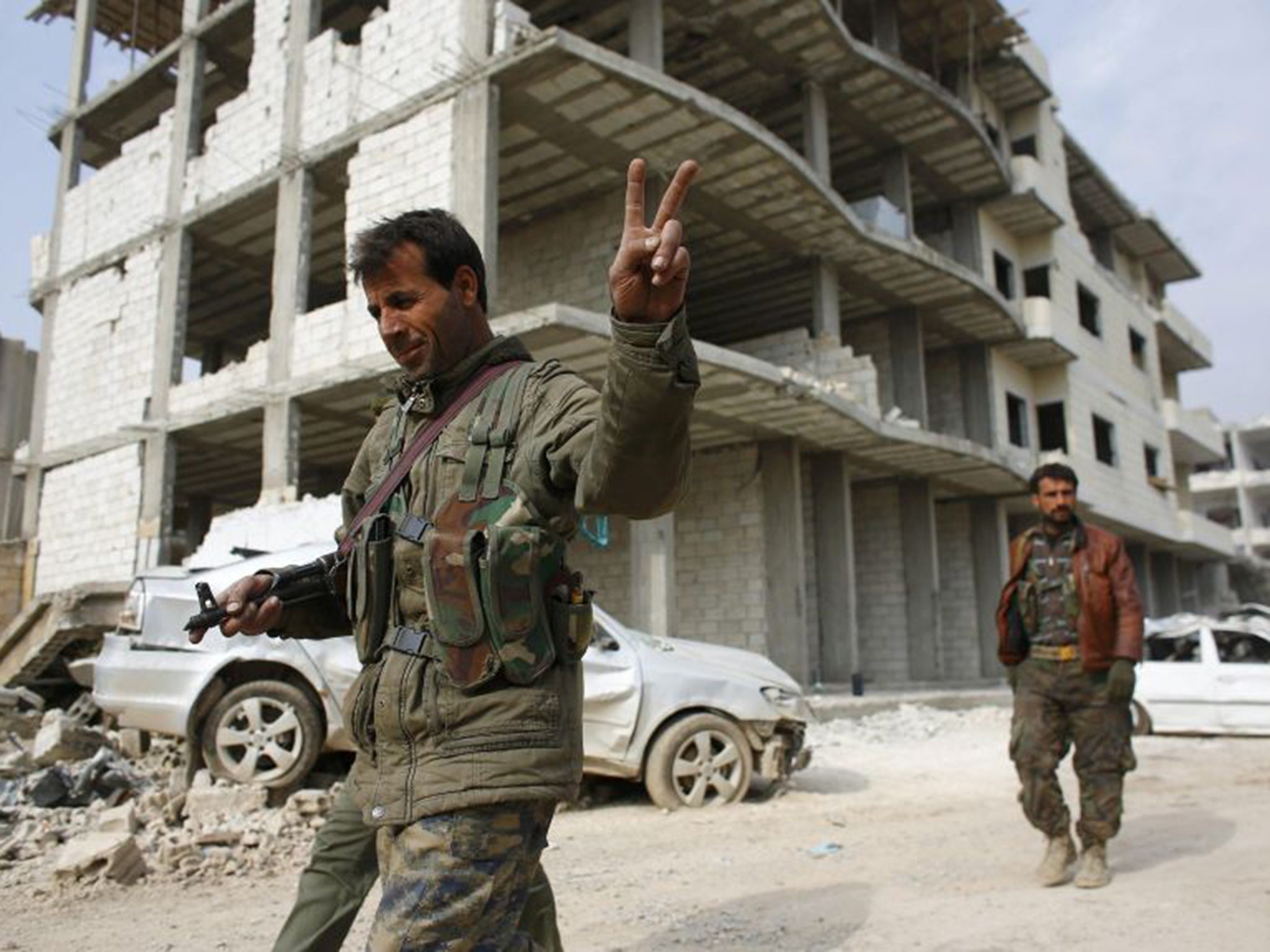
Airstrikes from the US-coalition continue, with an announcement yesterday stating that there had been 27 airstrikes carried out against Isis militants across Iraq and Syria since Friday, with eight of the 10 raids in Syria happening close to Kobani.
Mr Hasan, the defence minister, said he couldn’t make any prediction about how long it will take to re-capture the villages, “but they are easier to take than the city”.
“Here,” he adds looking around the shattered buildings in Kobani, “we had to fight for every street, every house.”
According to Kurdish sources, in the past few days at least five villages are said to have been cleared of Isis fighters.
Support from the international community is also vital for the rebuilding of the city, Mr Muslim said: “We call on Turkey to open the border to let aid in, we call on NGO’s and states to help us.”
It remains to be seen how willing the Turkish government will be to generously open the border gate for everybody who wants to contribute to the future of Kobani. Earlier this week, the Turkish President Recep Tayyip Erdogan was quoted in local media as saying: “We will not allow Northern Syria become Northern Iraq”, referring to the Kurdistan autonomous region in northern Iraq.
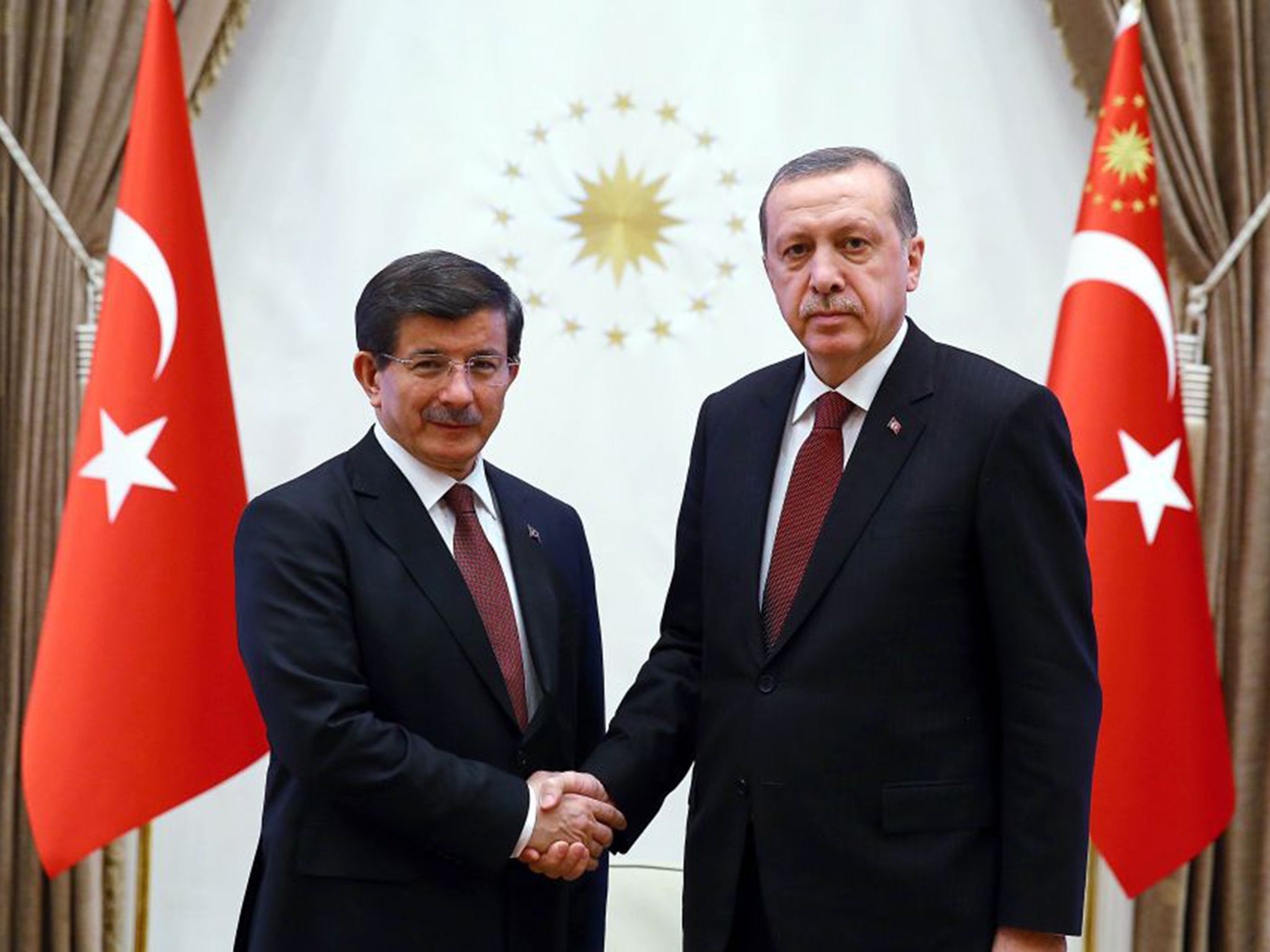
Turkey opposes Kurdish self-rule, as it fears that it will strengthen the claim for self-rule of the Kurds in Turkey and weaken the unity of the Turkish republic. This is also why Turkey was at first reluctant to allow military support to reach Kobani via its border crossing.
The Kurdish fighters of the YPG, its political wing, the Democratic Union Party (PYD) are linked with the Kurdistan Workers’ Party (PKK) in Turkey - with the PYD being its Syrian branch. For more than 30 years the PKK has been fighting for self-rule for the 15 million Turkish Kurds, but a ceasefire with Turkey has been in effect since 2013. Mr Muslim did not want to comment on Turkey’s possible objections to helping Kobani back on its feet. “We hope we can cooperate with Turkey”, he said.
There was some hassle in leaving Kobani when time was up. On the other side was group of some hundred Kobani villagers, mostly men, who sought refuge in Turkey in recent months. They want to get in. ‘Biji berxwedana YPG!’, they shout, “Long live the uprising of the YPG”.
They are then allowed in. The cleaning of Kobani can start.
Join our commenting forum
Join thought-provoking conversations, follow other Independent readers and see their replies
Comments